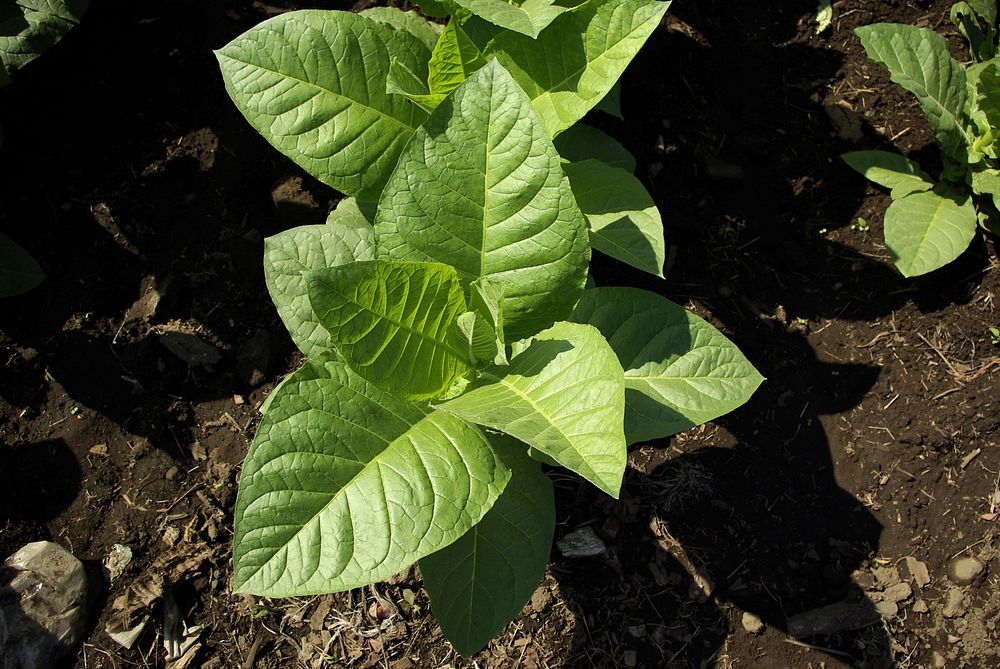Bangladesh wants to be tobacco-free by 2040, but production is up with risks for the environment and human health
Production rose 73 per cent in the last 14 years. in a special report, The Daily Star explains that tobacco cultivation is very profitable, but comes with many negative effects on human health, as well as the environment since it is a major cause of carbon emissions, deforestation, and water pollution via pesticides.
Rome (AsiaNews/Agencies) – Despite Bangladesh's goal of becoming a tobacco-free country by 2040, a goal backed by Prime Minister Sheikh Hasina and the common front of mayors that emerged in 2023 at a rally in Cox's Bazar, tobacco production per hectare rose by 21 per cent in the last five years, 73 per cent in the past 14 years, this according to The Daily Star.
In a long in-depth analysis published today, World No Tobacco Day, the Bangladeshi newspaper reports that the rise reflects big tobacco companies’ push for higher profits. But this comes with major risks, not only for smokers, but also for the environment, especially the soil and water.
Output has increased constantly in recent years. According to the Department of Agricultural Extension (DAE), this was made possible by higher yielding varieties, along with an intensive use of chemical fertilisers and pesticides.
However, a 2017 report by the World Health Organisation (WHO) found that the more intensive use of fertilisers in these varieties is more harmful for the environment and farmers.
In 2016, Prime Minister Sheikh Hasina promised to impose stricter tobacco controls to bring the country into line with the 2003 WHO Framework Convention on Tobacco Control.
Although the effects of tobacco on human health are well-known (cardiovascular diseases, cancers, and respiratory illnesses), its impact on the environment are almost unknown.
The various effects of tobacco production can negatively affect soil fertility, contaminate water, and pollute the air on such a scale that it poses a much greater risk than the production of any other crop.
Tobacco is also a major cause of carbon emissions and deforestation: 300 cigarettes are equivalent to 1 tree.
Bangladesh is the 12th largest tobacco grower in the world as of 2020, according to the University of Bath, United Kingdom.
In 2022/2023, 65,227 tonnes of tobacco were produced on 26,475 hectares (65,421 acres) of land, that is 1 per cent of the country's arable land.
Although the sector is good for the Bangladeshi economy, as a major sources of tax revenue and exports, it carries high risks, such as the reckless use of pesticides. Combined with the natural characteristics of the plant, this can change the natural composition of water and soil.
“As farmers often apply excessive chemical fertilisers and pesticides provided by the big tobacco companies for higher yields, the soil loses fertility and the nearby water turns toxic, according to a scientific study done in Kushtia, a major tobacco growing district,” writes The Daily Star.
The effects on water are also not negligible. According to a 2022 WHO report, a single cigarette requires about 3.7 litres of water in its life cycle through cultivation, production, transportation, use, and disposal.
Tobacco needs eight times more water than crops like tomatoes and potatoes. The drinking water needs of one person can be met for an entire year with the amount of water used in producing, consuming, and disposing of a single kilogram of tobacco.
According to The Daily Star, “The 2015 study in Kushtia shows that various hazardous residues, including 1,3-dichloropropene and aldicarb sulfoxide and aldicarb sulfonic toxic elements that come from pesticides, can enter the drainage aquifer and surface water and turn the water toxic.”
One example is the Halda River, in the south of the country, where tobacco farming has compromised aquatic life, including some fish species.
Local farmers say they are aware of the risks. The Daily Star interviewed seven of them in Bandarban and Khagracchari, all of whom confirmed the negative effects on the environment and their health.
“Yet they are attracted to tobacco farming because of the high profit margin compared to other crops made possible by the cash, input and technical support from tobacco companies,” explains the paper.
According to a study by the Policy Research Institute, tobacco farmers’ earnings are 30 per cent higher than those of those who grow other crops.
These growers are “contracted” with large tobacco companies, first and foremost British American Tobacco (BAT), the main player in the sector.
According to the company's own data, almost 52,000 farmers were contracted in 2023, up from 30,000 in 2018, confirming the countrywide trend.







.png)










